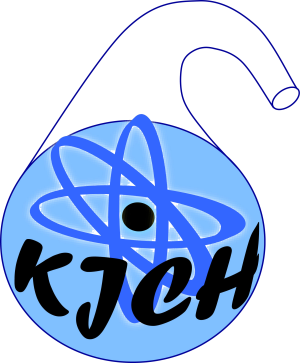Nuclear chemistry I+II (BSc)
Concept and history, subatomic structure of matter, nuclear reactions, natural and artificial radioactivity, natural decay chains, kinetics of nuclear reactions, activity and amount of radionuclide, energetics of nuclear reactions, decay schemes.
Nuclear reaction yield, cross section, excitation function, fission reaction, spontaneous fission. Chemistry of atoms formed in nuclear reactions, local temperature, atomic recoil and recoil energy, recoil of atoms bound in molecules, hot atom chemistry, retention, Szilard Chalmers reaction.
Detection of ionising radiation (BSc)
Properties of detectors of ionising radiation (IR), application of detectors, gas detectors, scintillation detectors, detectors for high energy IR, semiconductor detectors, integral dosimetric methods, statistical treatment of data, limit of detection.
Radioanalytical chemistry (MSc)
Indicator methods, analysis by means of naturally occurring radioactive elements, isotope dilution analysis (IDA), substoichiometric IDA, radio-reagent methods, radiometric titrations, radio-release methods, activation analysis, irradiation with thermal neutrons, irradiation with fast and resonance neutrons, irradiation with charged particles and gamma-rays, non-activation interaction analysis, X-ray fluorescence analysis.
Chemistry of radioactive elements (MSc)
Technetium, promethium, astatine, francium, polonium, radon, radium, actinide theory, actinides, actinium, thorium, protactinium, uranium, neptunium, plutonium, americium, curium, berkelium, californium, einsteinium, fermium, mendelevium, nobelium, lawrencium, transactinides, superheavy elements.



